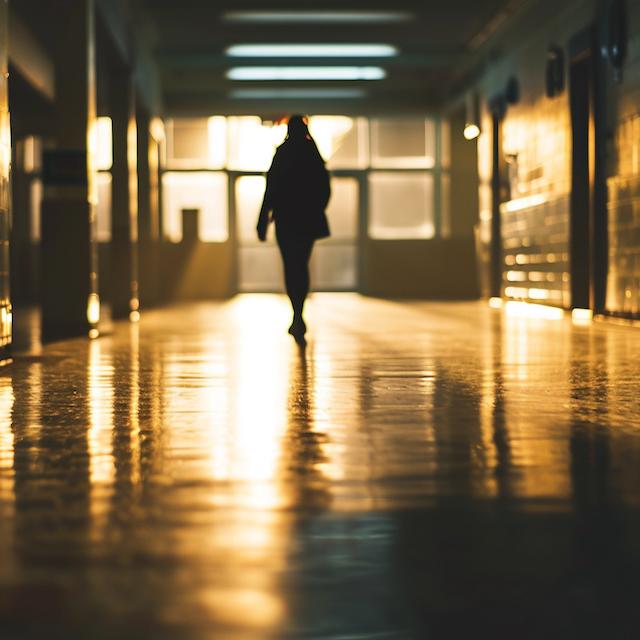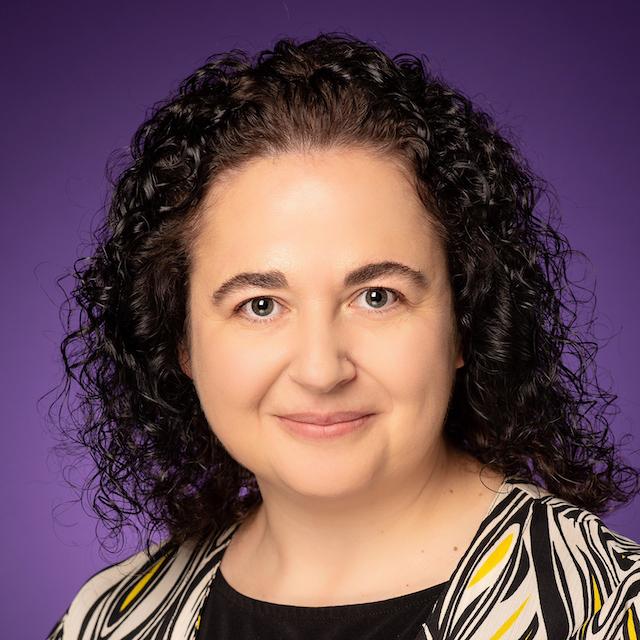
Faculty Q&A: School Shootings 25 Years After Columbine
Twenty-five years ago this month, a tragic event occurred that seemed to forever shift our culture: the mass shooting at Columbine High School. TCU psychology instructor Nur Cayirdag spoke to TCU News about how the event has impacted our society and where we find ourselves today.
Could you share with us what you see as far as how we as a society deal with and process
these sorts of tragedies now compared to 25 years ago? 
Back then, it seemed like the news was all about the shooters, and it felt kind of
overwhelming. But today, we are focusing more on the people affected, like the victims
and survivors, which feels more respectful and balanced. The conversation around mental
health has definitely improved. We're recognizing the importance of supporting children,
teachers, parents and society who are struggling and making more resources available.
Overall, I think we're making progress.
Unfortunately, we have had many school shootings since Columbine. But the world has
changed in other ways too. It is now a post 9/11 world, social media has now infiltrated
our lives, etc. How have these sorts of changes impacted us psychologically when it
comes to this sort of tragedy?
You’re absolutely right; the world has changed a lot since Columbine. We've had events
like 9/11, and social media has become a huge part of our lives. After 9/11, there's
been this feeling of always being on alert. We might feel more suspicious or worried
about potential threats, even in places where we used to feel safe. These changes
have affected how we feel psychologically when tragedies like school shootings happen.
With social media, we're constantly connected to news and information. When we hear
about a school shooting, it feels like it’s happening right next door, which can make
us feel more scared and anxious about our safety. But on the bright side, social media
can also be a place for support and coming together. People can share their stories,
offer help and call for change. It’s a way to show that we're not alone and that we
can make a difference.
This is a hard question to ask, but do we as a society now have a desensitization
to school shootings?
It’s a tough question indeed, but an important one to consider. In some ways, yes,
it does seem like there's a desensitization to school shootings in society today.
With the frequency of these tragic events and the constant media coverage, it’s almost
like they’ve become normalized. When we hear about another school shooting, it’s easy
to feel a sense of resignation or numbness because it feels like it’s just another
day in the news cycle. This desensitization can be concerning because it might make
us less motivated to take action to prevent them from happening again. However, it’s
important to recognize that desensitization doesn’t mean we don't care. It’s more
about how our brains cope with overwhelming and distressing information. We might
put up a mental barrier to protect ourselves from feeling too much pain or sadness
every time we hear about another tragedy.
 What about the difference in age groups? A traditional TCU student today grew up with
this. Many faculty and staff, for instance, experienced this as an adult. How does
that change our perspective?
What about the difference in age groups? A traditional TCU student today grew up with
this. Many faculty and staff, for instance, experienced this as an adult. How does
that change our perspective?
That's a really insightful observation. Age difference definitely influences how we
perceive and respond to tragedies like school shootings. For traditional college students
today, school shootings have been a part of their reality for as long as they can
remember. It’s like it has always been there, which can make them feel more used to
it but also maybe more wary. On the other hand, for faculty and staff who experienced
school shootings as adults, their perspective may be different. They might remember
a time when these incidents were less frequent or even unheard of, which could make
each new shooting feel more shocking and upsetting. They might also feel a greater
sense of responsibility for ensuring the safety of their students and colleagues.
In trying to look for a positive, do you feel like this event had a hand in impacting
more acknowledgment to mental health issues?
Definitely! It’s important to look for the positives, even in tough situations like
this. And yes, the Columbine shooting did bring some positive changes, especially
when it comes to mental health awareness. After Columbine, people started talking
more openly about mental health. We realize that there are often mental health issues
behind these tragic events. So, now there is more focus on understanding and supporting
people who are struggling. There are also more resources available for mental health
support, especially in schools. We are starting to break down the stigma around mental
health. More people are feeling okay to talk about their feelings and get the help
they need without feeling judged.
